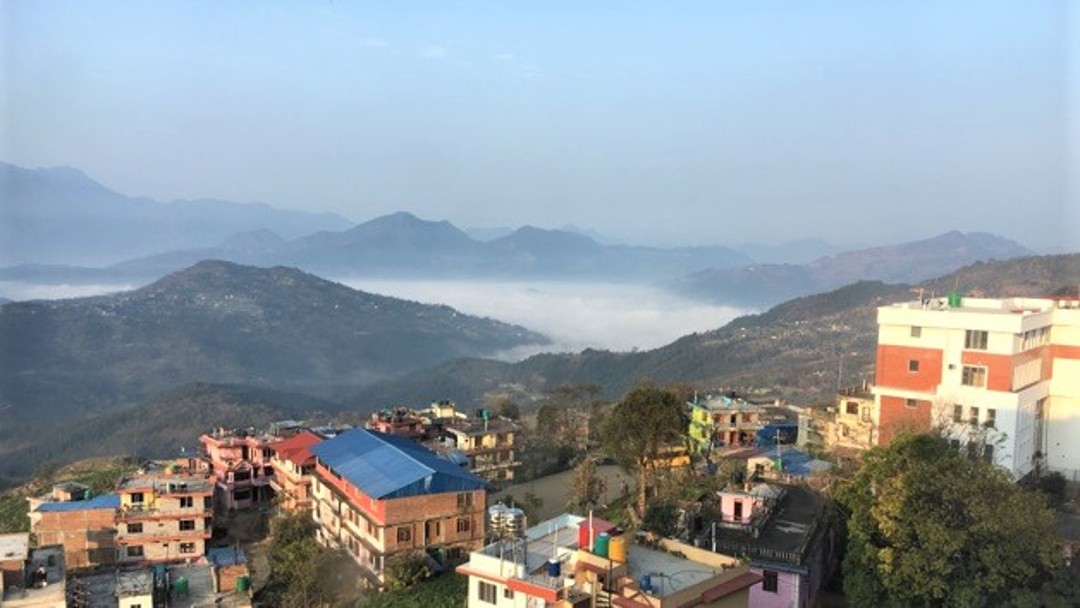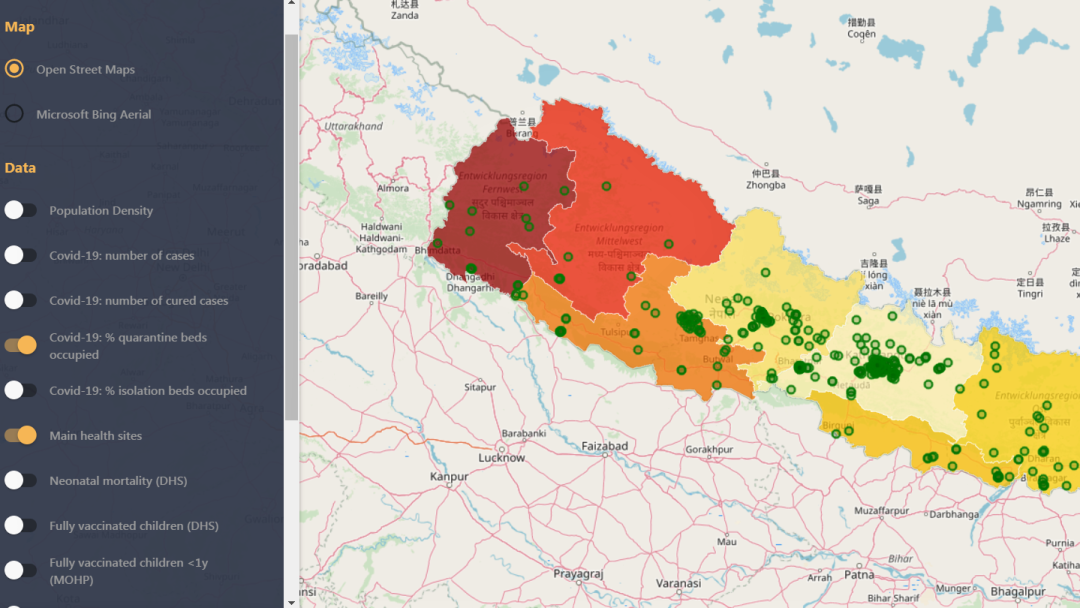News from 2020-06-22 / KfW Development Bank
Manage the crisis better with OSCAR
A digital platform facilitates COVID-19 decision-making
Updated on 2021-03-30

Nepal was spared Corona for a long time at the beginning of the pandemic, but for some time now the number of infections has also been moving at a high level there. To help the country manage the pandemic better, it can use a platform called OSCAR. OSCAR was introduced by KfW to collate medical data from various sources and form an overall picture of the situation, which can be used to make well-founded decisions.
The roof of the world, as Nepal is often known due to its high-altitude location, has a high number of people infected with Corona. At the beginning, Nepal had remained practically untouched by the pandemic, but since the early summer of 2020 the virus has been spreading there at an increasing pace. Recently, more than one hundred cases have been added to the figure almost each day. And there is no end yet in sight.
Now, however, officials in Nepal will be able to access OSCAR, which will help them get a better handle on the crisis: the platform provides an up-to-date overview of case numbers and soon also the available health care capacity. How many free beds are there, and where? Are there enough doctors in the region where a cluster of coronavirus cases has formed? Is there a lack of ventilators? OSCAR can answer all of these questions quickly and with the latest information. Based on mathematical modelling, the platform will also facilitate predictions about the fortnight to come. This enables Nepal to achieve maximum impact when deploying its limited staff and financial resources in the health care sector.
Health care provision challenges pre-dating coronavirus
Nepal has recently made significant progress on some key health care indicators. For example, mortality among children under five has decreased in the past few years. However, the goal of universal health care is still a long way off. Among other factors, that is due to the country’s difficult topography, being located largely in the Himalayan mountain range, and the severe earthquake of 2015 which destroyed many health care centres.
According to figures from the World Bank, less than half of people in Nepal have access to adequate medical care, while a quarter live below the poverty line. A crisis like the spread of COVID-19 therefore hits a country like Nepal particularly hard. This can make a platform like OSCAR all the more useful.

OSCAR is a digital support system for decision-making around health care risks. KfW developed it as a prototype for the prevention and management of pandemics, consulting humanitarian and scientific partner institutions in the process. The WHO in South East Asia showed interest in the system in connection with COVID-19 and asked KfW to provide a suitably adapted version, which is now available, financed with funds from the German Federal Ministry for Economic Cooperation and Development (BMZ). This functional version for Nepal is now operational and installed, but is currently being linked to additional data sources.
A versatile programme
The platform will be used — in cooperation with the WHO — besides Nepal also in other South East Asian countries which have yet to be chosen. Studies are planned for 2021 in three other countries to find out whether and under what circumstances or adjustments the use of OSCAR would be worthwhile there. In general, it is feasible that several more countries could use OSCAR to stem the spread of the coronavirus pandemic.
KfW sees the programme as a digital global public good. It will therefore also instigate an open source community with whose help it will continue to develop the platform further. Talks are currently being held with a German university on this. The prototype is not restricted to COVID-19; with suitable adjustments it can also provide useful services in other health care crises and assist with routine planning in health care settings. This means that the platform can be integrated into comprehensive KfW pandemic prevention measures as a digital component, something that the Federal Ministry for Economic Cooperation and Development (BMZ) draws particular attention to in its new BMZ 2030 strategy.
“What we have created here is a platform for the health care sector,” explains portfolio manager Patrick Rudolph, discussing KfW’s intentions, “which is suitable for several types of application and which can help poorer countries in particular to make most efficient use of their limited funds.”

Share page
To share the content of this page with your network, click on one of the icons below.
Note on data protection: When you share content, your personal data is transferred to the selected network.
Data protection
Alternatively, you can also copy the short link: https://www.kfw-entwicklungsbank.de/s/enzBWrMC.CQkA
Copy link Link copied